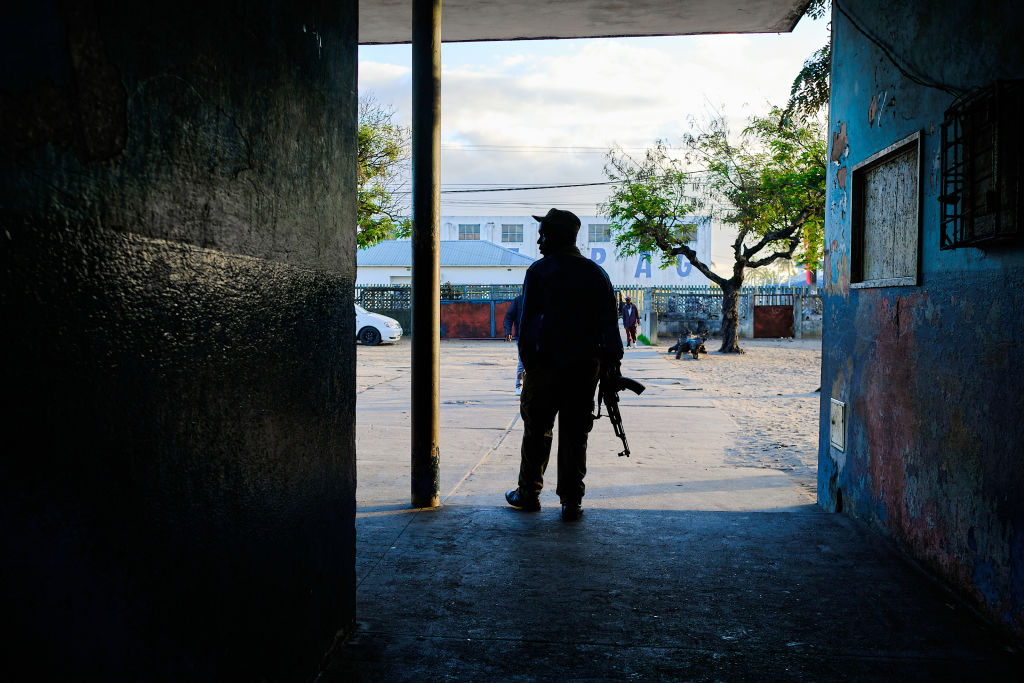Post-election unrest in Mozambique intensifies with at least 11 dead and dozens injured amid nationwide protests and allegations of fraud in the recent general elections. Experts weigh in on the continued tension.
The aftermath of Mozambique’s 2024 general elections, held on October 9, has plunged the nation into public protests with a strong response from the government, potentially leading to further turmoil if the contested results are ratified by the judiciary on November 7. The ruling Mozambique Liberation Front (FRELIMO), in power since the southern African country’s independence from Portugal nearly half a century ago, is facing scrutiny following allegations of electoral fraud and irregularities from both independent observers and opposition parties.
A Nation on the Brink
“Mozambique is like a ticking time bomb in many respects, including high levels of repression and the rapidly rising cost of living,” says independent political analyst Marisa Lourenço in an interview with FORBES AFRICA.
The scale of the unrest reportedly marks the largest revolt in the country’s modern history. Protests have erupted nationwide, with significant incidents in Maputo, Nampula, Niassa, Sofala, and Inhambane.
Loading...
Contributing factors noted by Lourenço include deteriorating living standards and the increased cost of living, with civic demonstrations having been on the rise even before the election. “This isn’t sustainable, and popular frustration was bound to result in sustained levels of protest at some point,” she observes.
The protests intensified after independent presidential candidate Venâncio Mondlane contested the official election results, which declared FRELIMO’s Daniel Chapo the winner. Mondlane, who claims to have secured over 50% of the vote, has called for nationwide demonstrations and a general strike, urging citizens to protest against what he describes as a fraudulent electoral process. International observers have echoed these concerns. The European Union Election Observation Missions (EU EOM) noted “unjustified alteration” of election results at polling stations and district levels, urging Mozambican authorities to conduct the counting of ballots “in a transparent and credible manner”.
Youth at the Forefront
“We are certainly seeing a trend on the continent where young people are fed up with a government that does not produce results for them or essential services,” says Allan Ngari, Africa Advocacy Director at Human Rights Watch (HRW), to FORBES AFRICA. “And I think Mozambique is no exception.”
The significant role of young Mozambicans in the protests cannot be overstated. Lourenço adds: “It shows that youth are under huge pressure from the lack of economic opportunities for them, something that has been an issue for years and does not seem to be getting any better.”
Many of these young protesters did not experience Mozambique’s fight for independence and are seemingly disillusioned with the state of affairs, says Lourenço. “Young Mozambicans want change. They have lost faith in FRELIMO’s ability to bring that change… They have also lost faith in what was until this election, the main opposition, RENAMO. The only alternative that young people see is in a figure like Mondlane.”
Escalation of Violence
The situation escalated dramatically with the reported killing of Mondlane’s lawyer, Elvino Dias, and Podemos party member Paulo Guambe. Dias was preparing to submit a case contesting the early election results to Mozambique’s Constitutional Court before he was killed, allegedly by security forces, according to eyewitnesses interviewed by HRW.
Given the judiciary’s perceived lack of independence, many doubt that a timely or impartial investigation will occur, further eroding public trust.
HRW has condemned the crackdown. Ngari states, “The Mozambique security forces’ violent crackdown on protesters has severely increased political tensions following the country’s elections.”
HRW reports that security forces have killed at least 11 people and injured over 50 others using live bullets and tear gas…
“But it’s much more than that. That was our reporting as of last week, so the number has increased,” says Ngari.
Government and International Response
Mozambique’s government has doubled down, shifting responsibility for the violence onto the opposition. Minister of Foreign Affairs and Cooperation Verónica Macamo accused Mondlane of incitement. “The speeches of candidate Mondlane and his supporters created the favorable environment for the transformation of demonstrations — a constitutional right — into acts of vandalism, theft, and violence,” she said.
In an apparent attempt to stifle communication among protesters, access to the internet and social media platforms has been restricted several times over the last week, with residents in major metros reporting limited or no access, as confirmed by local journalists, who reported the outages as an effort to stifle the protests and organization.
Meanwhile, in addition to the EU EOM, Portugal, Mozambique’s former colonial ruler, as well as the African Union (AU) and the United States have also condemned the violence.
The Road Ahead
Looking forward, the prospects for significant political change remain uncertain. As Mozambique grapples with this crisis, the demands for democratic reforms and accountability grow louder.
The government’s response to these protests will significantly influence the nation’s path forward. “FRELIMO took it a step too far by rigging the elections too blatantly, and undermining opposition candidate Venâncio Mondlane to a significant, obvious degree,” Lourenço concludes.
The hope for a peaceful resolution hinges on the government’s willingness to engage with the disillusioned youth and address the systemic issues fueling the unrest, and the final impact on the country itself remains to be seen.
“Significant political change is unlikely, in my opinion, but protests are likely to continue sporadically over the coming weeks,” says Lourenço. “Eventually, FRELIMO will have to listen to the youth, in some form, to appease them.”
Loading...
